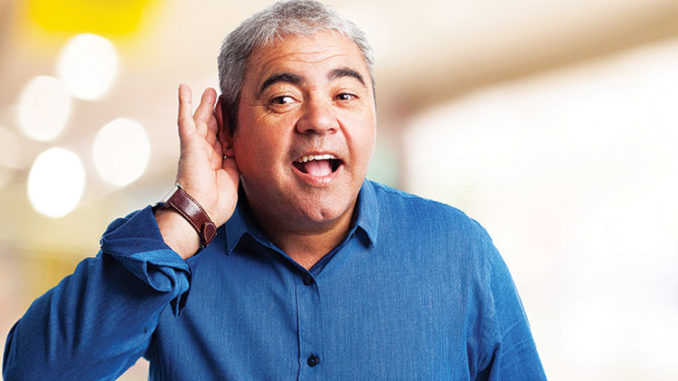
Hearing loss is a complicated ailment. Not only do sufferers lose part, or all, of their hearing ability, it can lead to depression, anxiety, and paranoia. Those who struggle to hear are also more likely to turn down invitations for social outings unless they have a hearing aid from somewhere like otofonix.com to help improve their ability to maintain a conversation.
Hearing loss, however, is not one size fits all which is why it’s important to get a hearing examination every 3-5 years, even if you’ve not noticed any hearing loss. Hearing loss can be very gradual so you might not realize the issue yourself. There are three main ways that doctors categorize hearing loss, but regardless of diagnosis, don’t lose hope. Approximately 48 million Americans report some degree of hearing loss. By age 65, one in three experience hearing loss. You’re not alone.
1) Sensorineural hearing loss
This type of hearing loss relates to the inner ear. When it is related to age, it is called presbycusis. A type of gradual hearing loss, presbycusis is caused by the death of hair cells in the inner ear common with aging. The process typically starts in your 30s and 40s. If you are from the UK, it is worth booking a hearing test in croydon to work out if this is something that affects you.
The dying cells translate sound vibrations into brain signals, so when they die, the brain struggles to pick up on quieter sounds. Speech may sound unclear as a result. That’s why this type of hearing loss is most commonly characterized by struggling to hear dining mates in noisy restaurants. It both reduces the quality of sound and changes a person’s ability to hear quiet sounds.
Once the hair cells have died, there is no way to repair them, but sufferers can limit additional damage by reducing exposure to loud noises. Frequent exposure to loud sounds is actually one of the key components of this type of hearing loss (when not related to aging), so nipping that in the bud can help preserve what hair cells remain.
Since there is no way to reverse the damage already done, those who suffer from sensorineural hearing loss may use a hearing aid or other hearing device. This is especially true if hearing loss is affecting daily life. There are so many varieties of hearing aids that people can use and with things like another hearing aid brand – WonderEar – talking about MDHearingAid and its positives and negatives helps them to determine which brand is the most value for money for their specific hearing loss problem. In addition, learning sign language or lip reading may ease fearful feelings that surround severe or complete hearing loss.
In addition to aging and exposure to loud noises, sensorineural hearing loss can occur from injury, ototoxic drugs, certain infectious diseases, a complication during birth, genetic makeup, or benign tumor.
“Hearing loss can be from a variety of causes and should be evaluated by a trained health care professional. Almost everyone with hearing loss can be helped, if they desire,” — Ronald G. Dong, M.D., Physician at Sacramento Ear, Nose, & Throat in Stockton
Are you at risk? In addition to aging, poor kidney or heart function can increase risk for developing presbycusis. That’s because poor kidney function can cause toxins that damage nerves in the inner ear to accumulate while cardiovascular disease can decrease blood flow to the inner ear. Smoking is another contributing factor.
2) Conductive Hearing Loss
Conductive hearing loss is more commonly related to a blockage in the inner ear that causes sounds to become quieter, but does not diminish quality. In many cases, it is a temporary condition that can be relieved by removing the blockage-whether it’s caused by a buildup of ear wax, fluid from an ear infection, or otosclerosis (a condition caused by unusual bone growth in part of the middle ear). This type of hearing loss is curable, unlike sensorineural hearing loss.
Are you at risk? Middle ear infections, trauma to the eardrum, and a blockage in the external canal are all risk factors for conductive hearing loss.
“Certain types of hearing loss can be fixed surgically, while a hearing aid may be the best choice for others,” — Ronald G. Dong, M.D., Physician at Sacramento Ear, Nose, & Throat in Stockton
3) Mixed Hearing Loss
The third type of hearing loss is a combination of the first two, when they occur simultaneously.
Recognizing what type of hearing loss you are experiencing is the first step. See a doctor who can check for blockage in the Eustachian tube and rule out infection or another ailment such as a ruptured eardrum that could affect hearing.
You may already have a good idea of which type of hearing loss you are experiencing based on how noises and voices sound. Other symptoms of sinusitis or ear infection such as ear pain or congestion may also provide clues. However, if hearing loss is prolonged and does not clear on its own, see an audiologist, a licensed professional who specializes in evaluating, diagnosing, and treating hearing loss and balance disorders.
With sensorineural hearing loss, results are permanent, but hope isn’t lost. Technology offers sleek, modern instruments that can improve hearing quality. In addition to traditional hearing aids, an audiologist may recommend an assistive listening device, telephone amplifiers, or hearing rehabilitation.
By the Numbers
15 % of Americans 18 years and over report some trouble hearing
60-69 is the age group that experiences the greatest amount of hearing loss
1 in 8 people in the U.S., age 12 and older, have hearing loss in both ears
2 % of adults aged 45 to 54 have disabling hearing loss
28.8 million U.S. adults (roughly) could benefit from a hearing aid
*National Institute on Deafness and other Communication Disorders (NIDCD)
Should You have Your Hearing Checked?
If you answer “Yes” to two or more of the following, you should make an appointment today:
Do you frequently ask people to repeat themselves?
Do you turn your ear toward sounds to hear better?
Do you understand people better when you’re able to look directly at their face?
Do you get lost in group conversations?
Do you experience pain or ringing in your ears?
For More Information:
S.E.N.T. Hearing Aid Center
1111 Exposition Blvd., #700, Sacramento
(916) 736-1911
SentHearingAid.com



